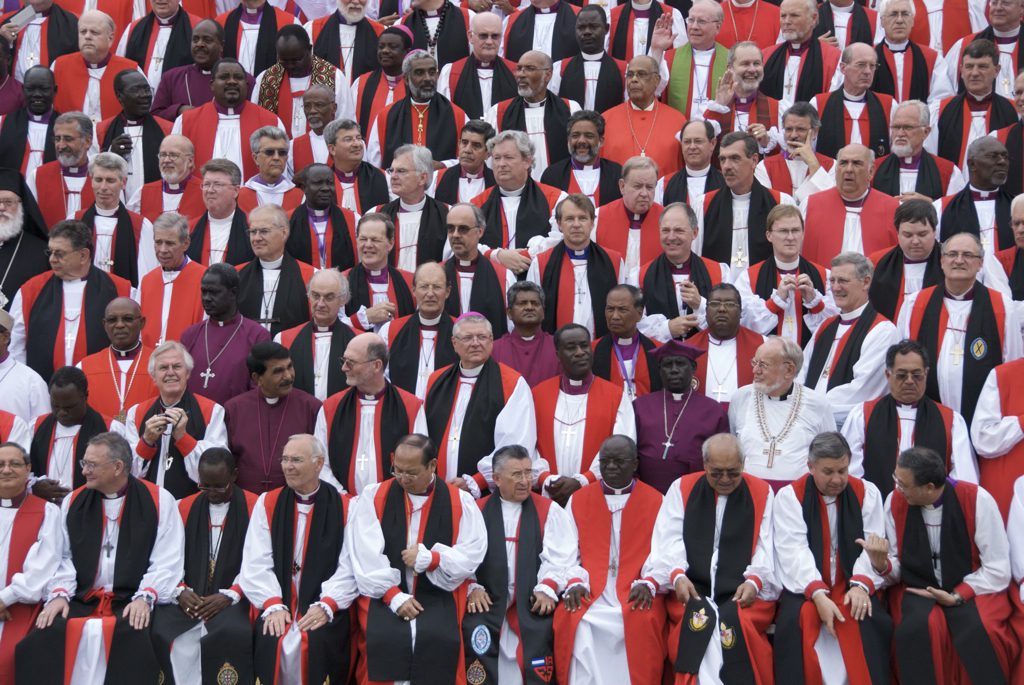
There seems to be some dogmatic and moral confusion within the Anglican Church. A few weeks ago, the General Synod refused to give a precise definition of the term “woman,” arguing that there was “no official definition.” The statement by Dr. Robert Innes, Bishop in Europe, issued by the Synod, caused some commotion.
Probably aware of the risk of a progressive drift on the sensitive subjects of gender and homosexuality, the archbishop of Canterbury, Justin Welby, was keen to reaffirm some of the fundamentals in a letter to the 650 Anglican bishops gathered for the Lambeth Conference, which brings together the senior clergy of the Anglican Church once every ten years, since 1867.
For the vast majority of conservative Anglicans, questioning the moral teaching of the Bible is simply “unthinkable,” he explained. As a result, the statement produced by the same Lambeth Conference in 1998, which considers gay sex a sin, remains fully relevant today.
However, the archbishop refrained from commenting on the substance of this statement, or expounding on what is true and false, right and wrong. For Archbishop Welby, confirming traditional moral teaching is not a question of truth, but of practicality and prudential policy, and this considerably diminishes the moral significance of his letter. He explains that it is necessary to reaffirm the validity of the 1998 judgment in order not to unduly weaken certain communities that are conservative on moral issues, and not to risk criticism and mockery. “In many countries, [it] would make the church a victim of derision, contempt and even attack. For many churches, to change traditional teaching challenges their very existence.”
Relativism thus seems to be the guiding norm. In the same letter to the bishops, Archbishop Welby explains that he refused to accept possible disciplinary sanctions against local churches that show leniency towards homosexual practices, as in Scotland and Wales, which already sanction homosexual unions and bless gay marriages. Relativism also drives the argument of the Primate of the American Episcopal Church, Michael Curry, who spoke at the Lambeth Conference and said that “churches exist in very different cultural contexts.” He added that in the U.S., “it would have been unthinkable not to bless and sanctify loving relationships between LGBT folk.”
Justin Welby’s position, which is a difficult balancing act, has been met with discontent from all sides. Pro-LGBT activists such as the Ozanne Foundation lamented Welby’s insistence on reiterating the Church’s traditional Bible-based doctrine. Conversely, Anglican conservatives regretted that the 1998 statement was not more explicitly reaffirmed. According to The Guardian, Justin Badi Arama, the archbishop of South Sudan, denounced Welby’s statement as contributing to “a time of great spiritual confusion and moral flux.” “The church of Jesus Christ cannot afford to lose its moorings in holy scripture and drift with the world,” he said. “Based on the need to establish clear doctrine on marriage and sexuality at this defining moment for the Anglican communion, this conference must reaffirm the biblical teaching of Lambeth conference 1998 resolution 1.10.”
The issue of homosexuality had featured prominently in the debates at the last Lambeth Conference, which took place in 2018. A very clear dividing line has emerged between the bishops of Western countries (United States, England, Australia, etc.), and the bishops of sub-Saharan African countries—some of whom have even chosen to boycott the conference, like the prelates of Rwanda, Nigeria, and Uganda.
